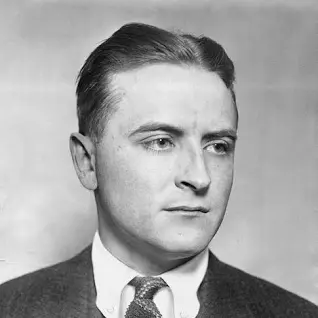Bio of F. Scott Fitzgerald
Updated: 24 December 23
6
Introduction
F. Scott Fitzgerald, an iconic parent in American literature, is famend for his brilliant portrayal of the Jazz Age and his exploration of subject matters such as decadence, idealism, resistance to trade, and excess. Born Francis Scott Key Fitzgerald on September 24, 1896, in Saint Paul, Minnesota, Fitzgerald became synonymous with the Roaring 1920s, a duration acknowledged for its cultural and artistic dynamism.

Fitzgerald’s Iconic Exploration of the American Dream
Fitzgerald’s maximum famous work, “The Great Gatsby,” posted in 1925, is a essential exploration of the American Dream and its darker factors. Set inside the fictional cities of West Egg and East Egg on prosperous Long Island within the summer of 1922, the radical tells the tragic story of Jay Gatsby, a self-made millionaire, and his pursuit of Daisy Buchanan, a rich young woman whom he loved in his youngsters.
Despite being a vital achievement, “The Great Gatsby” became not at once a business hit, however it subsequently won substantial popularity and is now taken into consideration a masterpiece of American literature.
Fitzgerald’s Literary Brilliance
Fitzgerald’s writing is marked by way of its lyrical, stylish prose, and his capacity to seize the spirit of his time. His other superb works consist of “This Side of Paradise” (1920), which was a semi-autobiographical account that added him on the spot reputation;
“The Beautiful and Damned” (1922), depicting the existence of Anthony Patch and his relationship with his spouse Gloria, a tale of disillusionment and ethical disintegration; and “Tender Is the Night” (1934), a greater somber and introspective work that examines the complexities of affection and identification.
Fitzgerald’s Turbulent Life
His private existence, marked with the aid of his tumultuous marriage to Zelda Sayre, his war with alcoholism, and financial difficulties, regularly reflected the topics he explored in his writing. Zelda changed into no longer simplest his spouse but additionally a big have an effect on, often serving as thought for a lot of his female characters.
“Fitzgerald’s End: Legacy and Literary Impact”
Fitzgerald’s career declined inside the late Thirties, and he struggled with health and monetary troubles. He died of a heart assault at the age of 44 on December 21, 1940, in Hollywood, California. At the time of his demise, he turned to running “The Last Tycoon,” a unique movie enterprise, which was posted posthumously and incomplete in 1941.
Fitzgerald’s legacy is profound; his works remain broadly study and studied, supplying perception into the American psyche during the early 20th century. His depiction of the Jazz Age has grown to be synonymous with the length, and his effect on subsequent generations of writers is immeasurable.
Who was F. Scott Fitzgerald and what is he best known for?
F. Scott Fitzgerald was an American novelist and short story writer, widely celebrated for his portrayal of the Jazz Age in the 1920s. He is best known for his novel “The Great Gatsby,” which critically examines themes like the American Dream, decadence, and social upheaval.
What are some of F. Scott Fitzgerald’s most significant works and their themes?
Besides “The Great Gatsby,” Fitzgerald’s notable works include “This Side of Paradise,” a semi-autobiographical story that brought him early fame; “The Beautiful and Damned,” which explores disillusionment and moral decay; and “Tender Is the Night,” delving into the complexities of love and identity. His works often reflect themes like idealism, excess, and the struggles of the human spirit.
How did Fitzgerald’s personal life influence his writing?
Fitzgerald’s tumultuous life, including his challenging marriage to Zelda Sayre, battles with alcoholism, and financial struggles, significantly influenced his writing. His personal experiences often mirrored the themes in his novels, and Zelda served as an inspiration for many of his female characters.
What was F. Scott Fitzgerald’s role in defining the Jazz Age?
Fitzgerald is often credited with coining the term “Jazz Age” to describe the 1920s era of prosperity, cultural upheaval, and liberation. His vivid depiction of the period in his literature, particularly in “The Great Gatsby,” has made his work synonymous with this dynamic epoch in American history.
What is the legacy of F. Scott Fitzgerald in American literature?
Fitzgerald’s legacy in American literature is profound. His works offer a critical insight into the American psyche during the early 20th century. His portrayal of the Jazz Age has become an integral part of how the era is remembered, and his influence on subsequent generations of writers and on American literature as a whole is immeasurable. His novels and short stories continue to be widely read and studied in educational settings and by literary enthusiasts worldwide.
Author Bio of the Reviewer
At My Review Book (MRB), our team of diverse reviewers, with backgrounds in literature, history, and cultural studies, brings a depth of understanding to each review. Our commitment to exploring the multifaceted nature of books like “Beloved” is rooted in our passion for storytelling and its power to enlighten and transform.
Please Write Your Comments